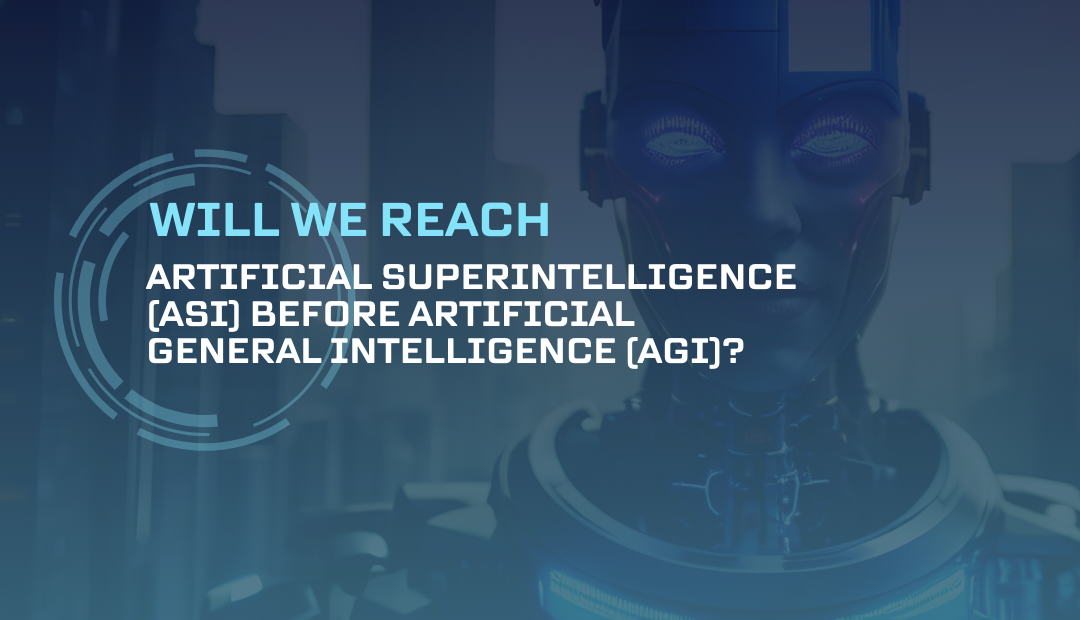We will achieve Artificial Superintelligence (ASI) before Artificial General Intelligence (AGI).
What I mean by that, is that we will reach true superintelligence in certain areas like science, math, coding, eclipsing the capabilities of the smartest human, while AGI in its truest definition (being able to do all tasks that an average human does) will take much longer. We are rapidly approaching a world dominated by specialized AI capabilities.
Why do I think that?
Many of the foundation models today are trained on 3/4th of the internet, and we are rapidly exhausting all human generated data [1]. We need many orders of magnitude more data than currently present, to achieve AGI.
However, there are certain domains, like math, coding, science, which can benefit from synthetic data. You can essentially have unlimited equations that can be solved, unlimited code that can be written for a desired output. If the goal is known, its path can be derived through synthetic data. We have already seen this. Models like AlphaZero in chess and Go or AlphaCode in coding have already demonstrated superhuman performance by training extensively on synthetic data.
OpenAI’s latest reasoning models further illustrate this trend. Sam Altman recently highlighted that their internal model now ranks among the top 50 coders globally, with projections to reach the top spot by the end of 2025 (Disclaimer: These are competitive coding challenges, it still needs work for production level code). But this is just the beginning, soon what happened to Go and Chess will happen to coding.
Domain-specific AI systems like AlphaFold from DeepMind have revolutionized scientific fields, particularly protein structure prediction, significantly accelerating drug discovery and bioengineering far beyond human capabilities.
These advancements won’t immediately replace general-purpose human roles. Rather, they enhance technical tasks, solving previously unsolvable problems in mathematics or science, exemplified by AlphaTensor’s breakthroughs in matrix multiplication algorithms. Specialized AI like AlphaFold will transform industries, yet general-purpose AI agents capable of fully replacing human jobs remain years away due to current limitations on training data and computational resources. While the world is over-hyped on hitting AGI, what is largely thought, is that ASI might be many years past AGI. In reality, it might look very different.
What does this mean for the world? How will the world change when we achieve ASI before AGI? It might mean that we can solve some of the hardest math, science, and coding problems. It might bring a revolution in drug discovery, hard tech, advanced robotics and exoskeletons.
I can’t help but think about and note, that for Trexo Robotics, this scenario offers an exciting opportunity. Trexo’s Master Plan explicitly targets this direction, focusing on solving the human robot interaction (done through user-driven control modes, powered assist features, and intelligent navigation capabilities based on extensive video and sensor data). As specialized AI becomes more capable, Trexo’s mission to help anyone wishing to walk will benefit significantly, enabling us to better serve our current market and eventually expand into broader populations, revolutionizing mobility for everyone.


Recent Comments